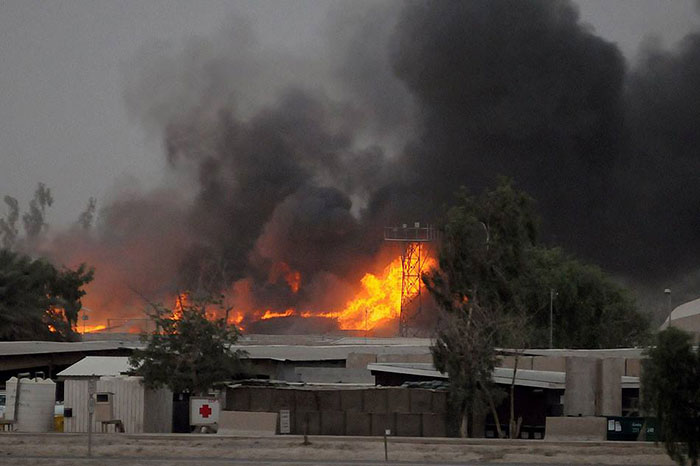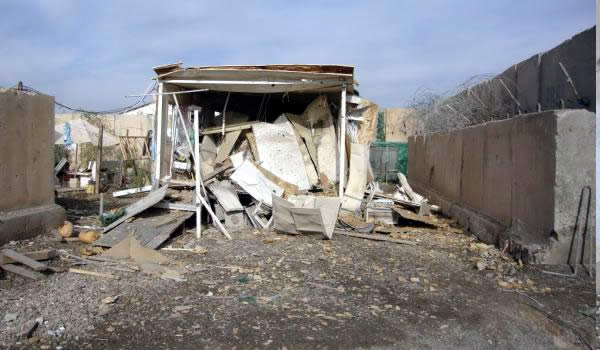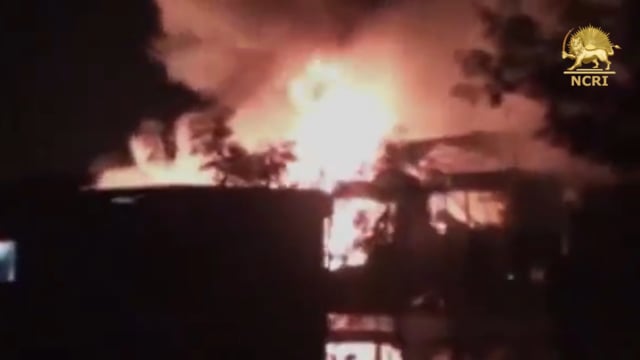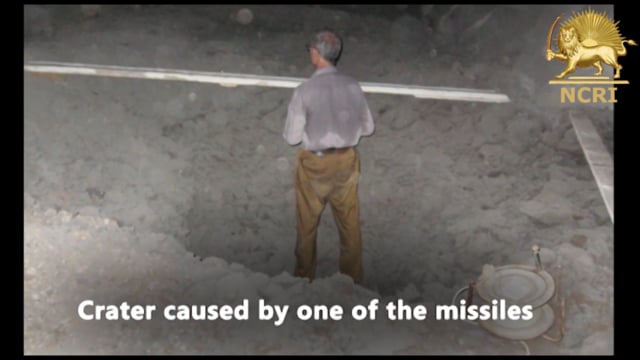The Background of the Relocation
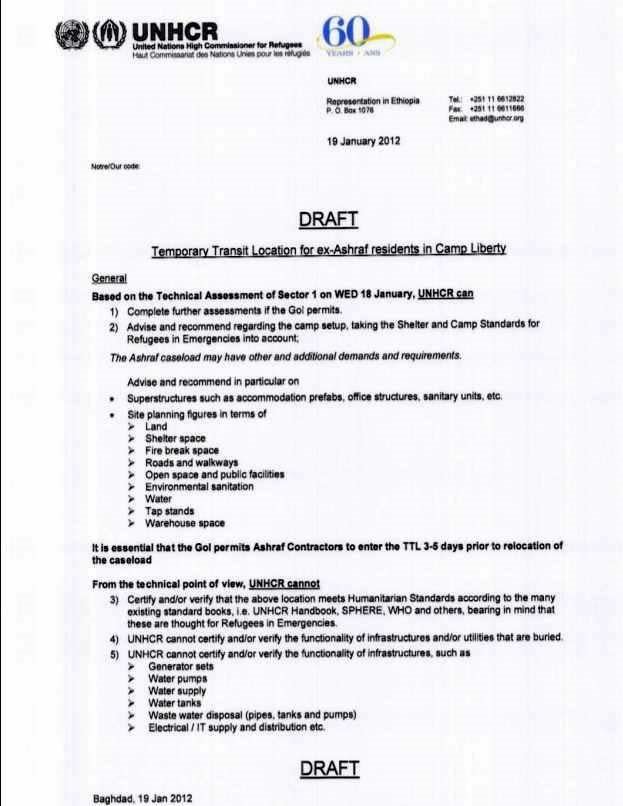
The residents of Camp Ashraf in Iraq were forced to leave the camp, their home they had built during 26 years, as of February 2012 to Camp Liberty a former deserted US base located at the proximity of Baghdad International Airport.
In the aftermath of April 2011-attack against Camp Ashraf, the then Iraq’s prime minister al-Maliki at the behest of the Iranian regime, unilaterally decided that Camp Ashraf has to be shut down at the end of 2011. Then, al-Maliki and the Iranian regime came up with a joint plan for closure of Ashraf and forced eviction of the residents to Camp Liberty.
The MoU and the SRSG’s misinformation
The plan was to be advanced by Martin Kobler, the then Special Representative of the UN Secretary General for Iraq. At that time, the Iraqi government entered into an agreement with the UN, dubbed Memorandum of Understanding, which put forth several items for which the Iraqi Government would be responsible. These included, providing safety and security for the residents and ensuring that Camp Liberty would meet international human rights standards and swift resettlement of the residents in third countries by the UNHCR.
The residents also received reassurances from UN and the US Government. SRSG Kobler reaffirmed the above commitments and stated in writing that the UN would provide 24/7 monitoring of Liberty. For its part the US Government, through Secretary Clinton, stated that, “officials from [the] U.S. Embassy [in] Baghdad will visit regularly and frequently.”
Safe haven in Camp Liberty!
However, terrible conditions in Camp Liberty abound. The conditions not only were an ongoing challenge for the residents, they also violated international human-rights standards and provided no safety or security for the residents. Consequently, Camp Liberty had been attacked on three separate occasions by forces affiliated to al-Maliki. These attacks have left tens dead and over hundreds wounded.
The sub-standard infrastructures
The camp’s infrastructures did not meet relevant provisions of international law or the requirements set out in the MoU, let alone the expectations of the residents who continue to languish in great danger. Running water was not available at the camp. The residents spent over 2.5 million US dollars to construct water purification and supply system.
Before the residents were moved to Camp Liberty, SRSG Kobler brought a UNHCR expert to certify that the infrastructure of Camp Liberty is in accordance with international humanitarian standards stipulated in MoU. However, the shelter expert from Switzerland did not certify but made an assessment on January 19th, stressing that Camp Liberty lacks proper infrastructure and is not suitable for Ashraf residents.
Camp Liberty under siege
All functions of life including cooking, cooling systems, food storage, lighting, water pumps, sewage discharging pumps, bakery etc. were dependent upon electricity power. The electricity power itself was delivered by power generators. Only a limited number of power generators were working. The Iraqi Camp management bard entrance of proper parts for maintenance and repair which left the generators at stake. Moreover, the power generators function by diesel fuel purchased by the residents. The Iraqi management cuts off the fuel, at its leisure, halting the entire lifecycle at the camp.
The containers and bathroom facilities (ablution units) had already served their life; many of the facilities were broken down and needed materials to be rehabilitated. However, the Iraqi Camp Management was constantly denying residents to bring in the needed material. The sewage system required daily work by the residents as it needed materials. Residents’ septic trucks as well as Iraqi contracted septic trucks had to work several hours per day for disposal of sewage. Yet, the Iraqi Camp Management bared entry of material as it deliberately held septic trucks at the Camp’s entrance creating delays, causing overflow of raw sewage near the residential quarters which raised concern about infectious disease to develop.
In Camp Liberty, the terrain was very rocky, making it extremely difficult for even healthy people to move around, not mentioning those who have bone conditions like arthritis. Yet, the residents were not allowed to construct pavements that would accommodate the movement. The plight of the residents was not finished yet; the Iraqis restrict essential livelihood supports such as cloths, fabrics, computers, cellphones, stationery, materials and supplies for air conditioning and ventilating systems.
Adding to these challenging conditions were serious due process violations. The Iraqi Camp Management had prohibited lawyers of the residents from accessing the Camp. So, they are not able to lodge any type of complaint. The residents were denied the ability to see any outside visitors. They were prohibited from leaving the Camp, thus denying them freedom of movement.
Medical restrictions
The right of free access to healthcare for the residents of Camp Liberty was also violated by the Iraq government. This grave violation of both medical and basic human rights principles had resulted in the rapid deterioration of the health conditions in the camp and even in death of some. In a letter delivered to the Prime Minister Haider al-Abadi, the World Medical Association wrote, “According to testimonies and reports from human rights organizations the basic rights of the 2700 residents - such as access to physicians and medicine, the confidentiality of physician-patient relationship or the right of patients to have interpreter and accompanying nurses when needed – are frequently violated”. “Furthermore, numerous reported cases relate to situations where hospitalization of patients and purchase of medicine have been prevented. Other examples include cancellation of medical appointments, delayed transfers of patients to hospital, or denial of permission to travel outside the Camp to receive treatment.”
UN Working Group: Camp Liberty is a detention center
UN Working Group on Arbitrary Detention — an independent and impartial body of experts appointed by the UN Human Rights Council whose mandate is to investigate detentions imposed arbitrarily or inconsistently with international human rights standards—discussed the case of the residents of Camp Liberty in two separate opinions on May 4 and August 30, 2012. Due to a lack of due process protections and proper living conditions, the Working Group found the Iraqi government to be in breach of its international legal obligations underscoring, “The conditions in Camp Liberty are synonymous with those in a detention center, as residents have no freedom of movement, nor interaction with the outside world, nor do they have freedom of movement and the semblance of a free life within the camp. The situation of the residents of Camp Liberty is tantamount to that of detainees or prisoners.”


